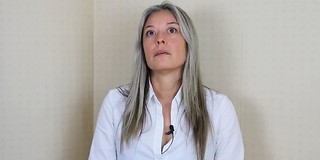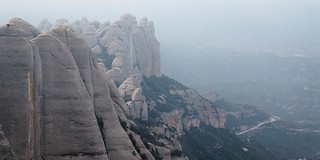Nicaragua: disconcerting difference between the reactions of Pope Francis and the UN
On August 12 I commented here on my surprise about the silence of Pope Francis in the face of the communist repression against Catholics in Nicaragua.
Pope Francis' statement this Sunday
Today, during his traditional speech on the occasion of the Angelus in front of Saint Peter's Square, Francisco has broken his silence after two years without referring to the situation in Nicaragua, in which the faithful and Catholic entities are being object of a harsh campaign of persecution. You can listen here to the brief allusion made by the Pope to the situation in Nicaragua, in an intervention in Italian (the usual language used by the Popes at the Angelus) dubbed into English by Vatican News, the service news from the Holy See (the inserted video starts at minute 12:07, when the Pope refers to that issue):
And here you can read the transcript of Francisco's words:
"Brothers and sisters: I closely follow with concern and pain the situation created in Nicaragua, which involves people and institutions. I would like to express my conviction and my hope that, through an open and sincere dialogue, the bases for a respectful and peaceful coexistence can still be found. Let us ask the Lord through the intercession of the Purisima to inspire in everyone's heart such concrete will."
This statement has puzzled me. Francisco has not made a single mention of the Catholics in Nicaragua, who are the ones who are suffering this campaign of persecution at the hands of Daniel Ortega's dictatorship, nor of the detained Catholic priests. Nor has he asked the dictatorship to stop this persecution, nor has he asked for the release of the detainees. Francisco's statement has been so tenuous that if we change the mention of Nicaragua to any other country, these words could be used for a labor conflict, for an election or for a riot after a soccer game.
Listening or reading those words, those who are unaware of what is happening in Nicaragua will think that there is a fight between equals that required that Francis simply get in the middle to bring peace. And it is not like that. What is happening in Nicaragua is that there is a dictatorship that is repressing all those who make it uncomfortable, especially the Catholics.
The statement by the UN Secretary General this Friday
This week the UN Secretary General has also referred to the situation in Nicaragua. The UN website noted this Friday that its Secretary General, the Portuguese socialist António Guterres, "is very concerned by the severe closure of democratic and civic space in Nicaragua and recent actions against civil society organizations, including those of the Catholic Church. Reports of a raid against the residence of the Catholic bishop of Matagalpa only heightens these concerns." UN Secretary-General Deputy Spokesperson Farhan Haq added:
"The Secretary-General reiterates his call to the Government of Nicaragua to ensure the protection of human rights of all citizens, particularly the universal rights of peaceful assembly, and to freedoms of association, thought, conscience, and religion, and to release all people arbitrarily detained."
After reading this I don't understand anything anymore. Through its official website, an organization like the UN, which has been silent so many times in the face of persecution against Christians, now cites the persecuted Catholic Church in Nicaragua, and even calls for the release of detainees and the protection of human rights in the country, while the Pope does not even mention his persecuted brothers. Paradoxically, Francis' statement has been more lukewarm and ambiguous than that of the UN. It's the world upside down.
|
Don't miss the news and content that interest you. Receive the free daily newsletter in your email: Click here to subscribe |
- Most read
- The ten oldest national flags in the world that are still in use today
- United States' last Hueys: Vietnam-era veterans still flying in the US Air Force
- A former secret submarine base in Estonia and its important role in the Cold War
- The newspaper El Mundo calls a member of an active terrorist group a 'Palestinian militant'
- Lenin: numbers, data and images of the crimes of the first communist dictator
- The distinctive garments of the regulars of the Spanish Army explained by two soldiers
- Argentina buys 24 F-16s and we can now see how they will be armed and decorated

 ES
ES





Opina sobre esta entrada: